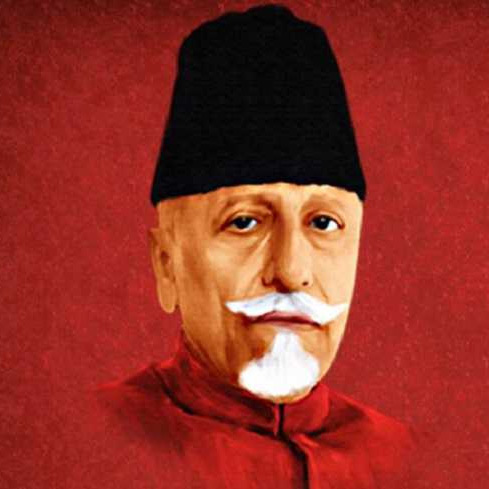Maulana Abul Kalam Azad

Maulana Abul Kalam Azad was one of the most influential independence activists during India’s freedom struggle. He was also a noted writer, poet and journalist. He was a prominent political leader of the Indian National Congress and was elected as Congress President in 1923 and 1940.
Despite being a Muslim, Azad often stood against the radicalizing policies of other prominent Muslims leaders like Muhammad Ali Jinnah. Azad was the first education minister of independent India. Maulana Abul Kalam Azad was posthumously awarded ‘Bharat Ratna’, India's highest civilian honor, in 1992.
Maulana Abul Kalam Azad was born Abul Kalam Ghulam Muhiyuddin on November 11, 1888 in Mecca, Islam's main center of pilgrimage. His mother was the daughter of a rich Arabian Sheikh and his father, Maulana Khairuddin, was a Bengali Muslim of Afghan origin. His forefathers came to India during the reign of Mughal Emperor Babar, from Heart, Afghanistan. Azads were the descendent of eminent Ulama or scholars of Islam. In 1890, he returned to Calcutta (now Kolkata) along with the family.
Azad, inspired by the passion of Indian as well as foreign revolutionary leaders, started publishing a weekly called "Al-Hilal" in 1912. The weekly was a platform to attack the policies of the British Government and highlight the problems faced by the common Indians. The paper became so popular that its circulation figures went up to 26,000 copies. The unique message of patriotism and nationalism blended with religious commitment gained its acceptance among the masses. But these developments disturbed the British Government and in 1914, the British Government put a ban on the weekly. Unfazed by the move, Maulana Azad, few months later, launched a new weekly, called "Al-Balagh". Failed to put a prohibition on the writings of Maulana Azad, the British Government then finally decided to deport him off Calcutta in 1916. When Maulana Azad reached Bihar, he was arrested and put under house arrest. This detention continued till December 31, 1919. After his release on January 1, 1920, Azad returned to the political atmosphere and actively participated in the movement. In fact, he continued to write provocative articles against the British Government.
Maulana was a firm believer in the co-existence of religions. His dream was that of a unified independent India where Hindu and Muslims co-habited peacefully. Although this vision of Azad was shattered post partition of India, he remained a believer. He was the founder of the Jamia Milia Islamia Institution in Delhi along with fellow khilafat leaders which has blossomed into a renowned University today. His birthday, November 11, is celebrated as National Education Day in India.
